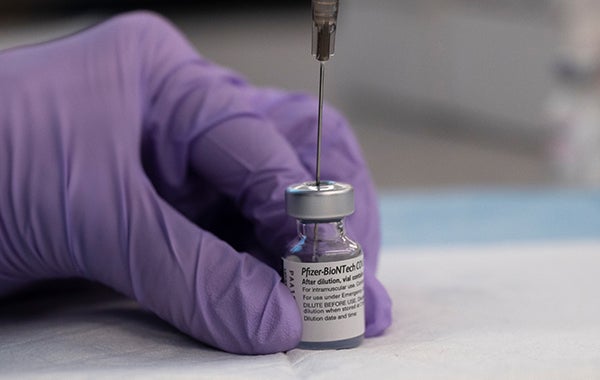Andrews University among 26 colleges partnering with MDHHS in vaccination efforts
Published 2:37 pm Monday, April 12, 2021
|
Getting your Trinity Audio player ready...
|
LANSING — On Thursday, the Michigan Department of Health and Human Services announced that Berrien County’s Andrews University would be a part of a new vaccination effort.
With all Michiganders eligible to receive one of the three safe and effective COVID-19 vaccines, MDHHS is continuing its efforts to equitability distribute and increase vaccine accessibility. This now includes vaccine allocation to universities and colleges and expanded mobile sites in communities across the state. Andrews University is one of 26 colleges and universities statewide participating.
“Vaccinations are the best tool we have to fight COVID-19 and end this pandemic,” said Dr. Joneigh Khaldun, MDHHS chief medical executive and chief deputy for health. “We are committed to making vaccine accessibility simple and equitable, which is why we are mobilizing efforts to bring vaccines to college students, and to those who are most vulnerable or do not have access to transportation. These efforts will help us reach our goal of vaccinating at least 70 percent of Michiganders age 16 and up as quickly as possible.”
The effort to increase university allocations is intended to vaccinate students before they return home for the summer. Nearly 16,000 Johnson & Johnson vaccine doses are being shipped to local health departments associated with participating colleges and universities across the state.
“Vaccinating this group of the population right now makes a lot of sense as thousands of college and university students near the end of their academic year and are preparing to travel back home, start new jobs, take summer vacations, and interact with their family and friends,” said Northern Michigan University president Fritz Erickson. “We appreciate this initiative by the state to keep college students safe. This effort will protect not only the age group that is now seeing a higher rate of infection than before, but it protects communities and families across the state from spread of the virus due to the mass movement of college students that takes place over the next few weeks.”







